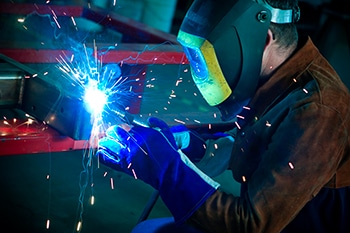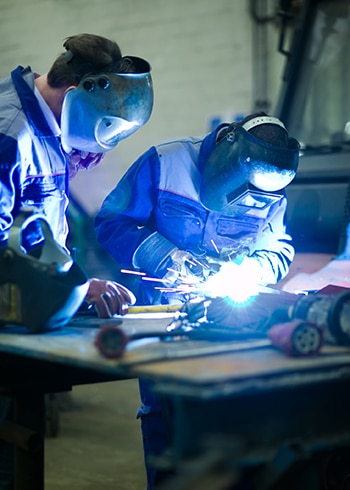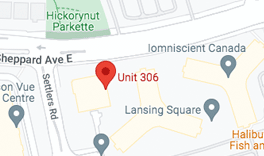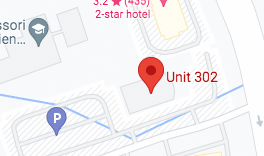Welding/Welder Fitter Job Info
Welder Often Appears on the List of In-Demand Trades for Canadian Industries
 There is currently a rather interesting dichotomy in Canada with respect to welding jobs; welding often appears on lists of in-demand trades jobs but the actual number of skilled welders across the country is in short supply. This inconsistency/contradiction in supply and demand presents an excellent opportunity for any individuals interested in pursuing a career as a welder or welder fitter.
There is currently a rather interesting dichotomy in Canada with respect to welding jobs; welding often appears on lists of in-demand trades jobs but the actual number of skilled welders across the country is in short supply. This inconsistency/contradiction in supply and demand presents an excellent opportunity for any individuals interested in pursuing a career as a welder or welder fitter.
Some of the major Canadian industries in which skilled welders can find success include:
Before delving into the various avenues that can lead to securing jobs in such industries, it may be helpful to explore the fundamentals of these roles in more depth. To begin, it will be important to note that many people, employers and tradespeople alike, often use the terms welder and welder fitter interchangeably; however, there are some subtle yet distinctive differences:
- Welder – responsible for the complete welding or fusion of the joints/materials
- Welder Fitter – reads the blueprints, marks the weld locations, fits the pieces, and tacks them in place in preparation for the welder to complete or finish the job
Since both roles involve and require welding skills, they will be considered as equivalent for the balance of this discussion.
What Does a Welder Do?
- If you want to apply for a welder job, you should understand how to read and create blueprints and have the ability to calculate dimensions.
- You will be required to assess structures and materials for the quality of welds.
- As a qualified welder, you will be responsible for keeping your machines and welding equipment in excellent working condition.
- It helps to know how to use hand-held metal joining tools to join parts and fill seams, holes, indentations.
- It is beneficial to know metallurgy, basic engineering, and specialized math concepts such as trigonometry.
To meet the various demands associated with welding jobs, interested candidates should possess the following:
- Good physical fitness
- Strong eye-hand coordination
- An ability to focus on repetitive tasks
- Respect for on-the-job safety practices
- Tolerance to work near/with heat and bright lights
- An understanding of working with hazardous materials
Also, there are different forms of welding, or areas of specialization within the trade, that are routinely associated with the use of certain types of materials/metals and/or linked to specific industries. The better-known of these sub-specialties consist of:
Welding Jobs that Involve Travelling
Most welding jobs require passing a test and placement, depending on your skill level. Here’s a list of careers that involve travelling:
- Industrial Shutdowns
You will have the opportunity to ensure manufacturing plants operate efficiently. - Ship Building & Repair
Welder jobs in shipyards often include working to build specialty research vessels, aircraft carriers, and more. - Military Support
Contracting companies look for trained and highly skilled welders who specialize in building infrastructure and repairing military equipment. - On-board Ship Repair & Maintenance
Welder jobs for a cruise line will require you to live on the ship to replace pipes and cater to repair and maintenance needs. - Pipeline Installation
You may have to travel to places where pipelines are being installed. The job would include repair and maintenance to prevent leaks and ensure safety. - Motorsports
NASCAR teams often have welding job opportunities, which involve travelling with the pit crew to construct and repair customized equipment. You will be required to help build cars through welding and metal fabrication.
Apparent by the scope of opportunities, presented within the trade itself and throughout the industrial sector, welding can indeed prove to be a viable and rewarding career path.
Competencies And Characteristics of Welders
Observation Skills
In welding, acute observation skills are crucial. Welders must keenly assess materials, blueprints, and project specifications. From identifying potential defects to ensuring precision in measurements, your observational prowess will be the key to producing high-quality welds that meet industry standards. Canadian employers highly value welders with a sharp eye for detail.
Manual Dexterity
Welding is an art that demands precision and finesse. The ability to manipulate welding tools and navigate intricate projects with ease is a hallmark of skilled welders. Welder jobs in Canada often require individuals with exceptional manual dexterity, as they play a vital role in ensuring the structural integrity and safety of various projects.
Time Management Skills
Meeting project deadlines is paramount in the fast-paced world of welding. Time management skills are highly valued by employers, and Canadian welding jobs are no exception. Efficiently allocating time for each phase of a project, from preparation to completion, is a hallmark of a reliable and sought-after welder in the Canadian job market.
Analytical And Problem-Solving Ability
Welding is not just about joining metals. It’s about overcoming challenges. Welders in Canada are often faced with unique problems that require analytical thinking and effective problem-solving. Your ability to troubleshoot issues on the spot and implement creative solutions will set you apart in the competitive landscape of welder jobs across the country.
Professional Staffing or Placement Agencies Can Help Launch a Welding Career
 While all of the above may sound somewhat enticing, there remains one fundamental yet rather important matter for consideration – how does a potential candidate establish the foundation for a career as a welder? Even though the trade is in relatively high demand throughout the country, welding jobs are not handed out to all who might simply express an interest.
While all of the above may sound somewhat enticing, there remains one fundamental yet rather important matter for consideration – how does a potential candidate establish the foundation for a career as a welder? Even though the trade is in relatively high demand throughout the country, welding jobs are not handed out to all who might simply express an interest.
To prepare a sound base for their welding careers, interested parties should consider the following:
- Obtaining a high school diploma (emphasis on math and science), and
- Post-secondary studies at a community college or technical school, or
- Acquiring a registered apprenticeship through an appropriate employer (apprenticeships can also be attained via the post-secondary institution)
- Completing the associated certification exams per area of specialization
Individuals seeking a welding apprenticeship, especially those who do not have access to such opportunities through the post-secondary route, may find it beneficial to align their efforts with a professional staffing/placement agency such as Winters Technical Staffing. For over 40 years, Winters Technical Staffing has specialized in identifying and providing talent for the manufacturing sector, particularly the industries mentioned previously for which welders can be in high demand.
By collaborating with the placement specialists from Winters Technical Staffing, welding candidates will have access to:
- Established working relationships with companies in many applicable industries
- Information on a range of potential apprenticeships/employment opportunities
- Job postings for employers in the local Toronto area as well as out-of-province
- Job opportunities that may best align with their specific area of interest or skill
- Employment options that may not otherwise be advertised to the general public

Connecting Top Talent
With Great Companies
Find your ideal position today
Frequently Asked Questions About Welding Jobs
Is Welding a Good Career Option in Canada?
Welding is an excellent career in Canada as welders will always be in demand due to increasing industrial needs. You can find a secure job and establish a rewarding career if you have the right skills. Moreover, it is a prestigious position among tradespeople and often includes good employment packages with several benefits. Welding jobs have a broad scope and come with travelling opportunities, depending on the industry you work in.
What Welding Jobs Pay the Most?
Most welder job opportunities pay well. Pipe, military, aerospace, underwater welders, and certified welding supervisors get paid well. In addition to this, MIG welders and structural welders also get a good salary. You can find good-paying jobs in manufacturing, engineering, inspection, robotics, maintenance, construction, and installation and fabrication as a skilled welder.
What are the Skills Needed to Land a Rewarding Welder Job?
Some crucial skills for a welder include operation and control, assessment or monitoring, orientation to detail, critical thinking, and reading comprehension. It helps to have physical strength and stamina, good vision, and manual dexterity to establish a successful career in this field.
Which Industries Commonly Employ Welders?
Infrastructure construction is the most common industry for welding jobs. However, you can also find lucrative employment opportunities in the automotive, aeronautical, and marine industries.
How Can a Welder Advance Their Career?
Welders can advance their careers by getting certified and gaining experience in a specific type of welding. You may participate in apprenticeship programs where you can learn while getting paid. Also, many recognized certifications are available depending on your skillset and career plan to help you land a good job opportunity. It helps to know that most employers typically ask for the Canadian Welding Bureau (CWB) certification.
Contact Winters Today
Looking for professional support to help launch your career in the welding trade? Call Winters Technical Staffing today at 1-877-495-7422 or contact us today to schedule a no-obligation consultation with one of our specialists about the steps you need to take to make your ambition a reality.







